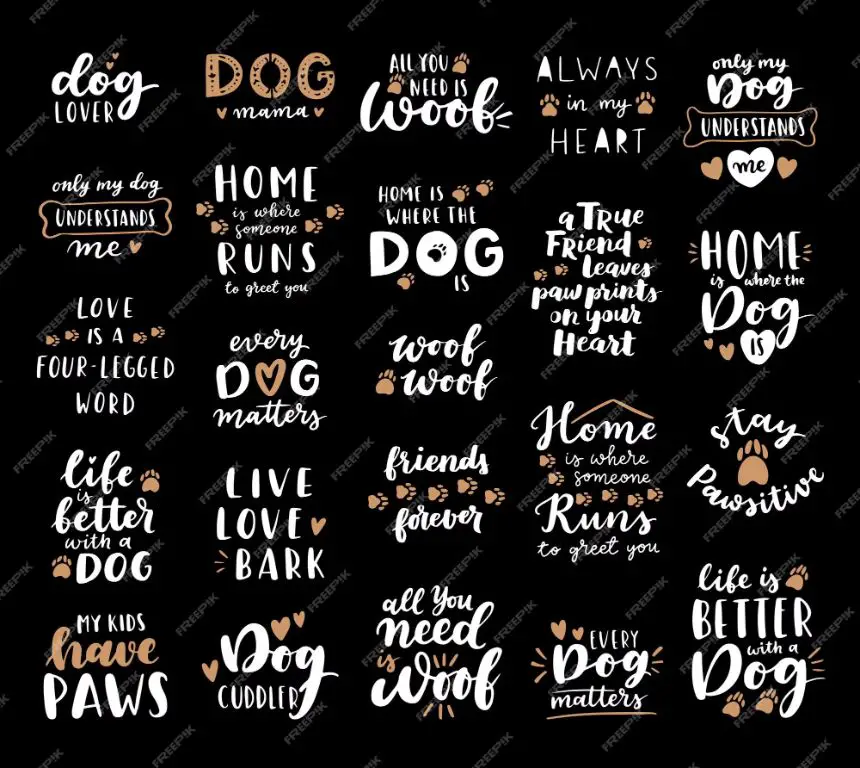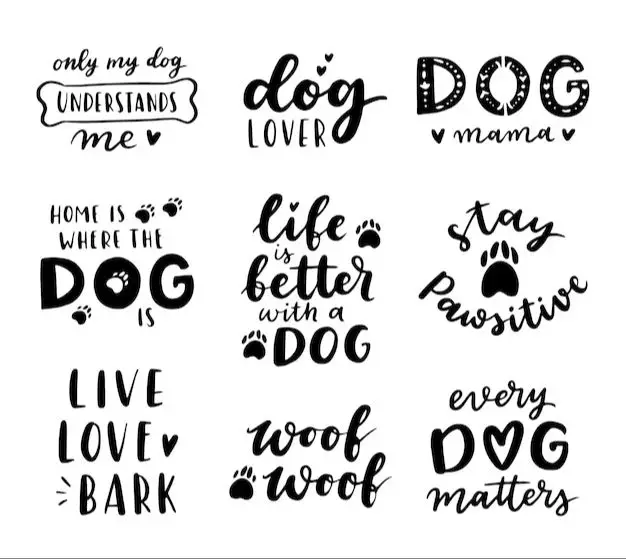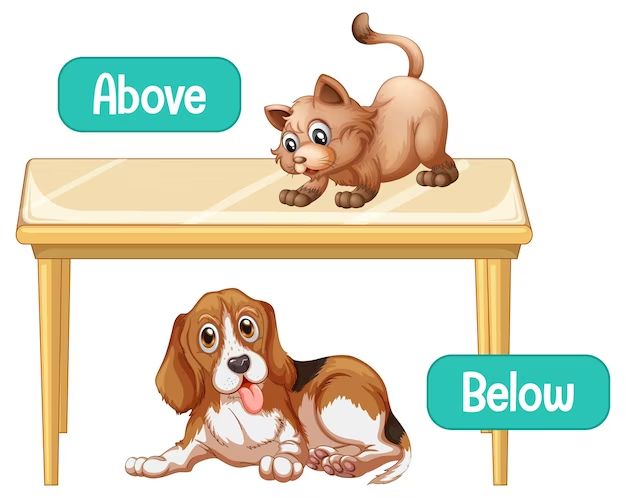Introduction
The phrase “Where my dogs at?” first emerged in 1990s hip hop culture as a way for rappers to shout out their crew. It was popularized by artists like Snoop Dogg, who used it as a call to represent your loyal friends or supporters.
While the exact origins are unclear, it seems to derive from the idea of one’s “dogs” or friends watching their back. Calling out “where my dogs at?” was a way to see who was down to support you or had your back in a heated situation.
Over time, it evolved into a more general phrase used to ask where one’s close friends are or just to represent where you’re from. But it still retains that sense of camaraderie and loyalty associated with the original meaning among hip hop circles in the 90s.
Literal Meaning
The phrase “where my dogs at” can be interpreted literally to mean inquiring about the physical location of one’s pet dogs. When used in this sense, the speaker is asking a genuine question to determine where their own dogs are, often because the dogs have wandered off or are lost.

For example, someone might shout “where my dogs at?” if they let their dogs outside to play in the backyard, only to find the dogs are no longer there. Or a dog owner at a park might ask their friend “where my dogs at?” if their dogs run off to chase squirrels across the park. In these contexts, the phrase is meant literally – the dogs’ owner is trying to locate their pets.
The literal meaning is often used in a playful manner, such as someone asking “where my dogs at?” when calling for their dogs to come back inside the house. But the core implication remains the same – inquiring sincerely about the physical whereabouts of one’s own pet dogs who are missing or whose location is unknown to the owner.
Slang Meaning
While “Where my dogs at?” was initially used as a literal question about the location of one’s canine pets, it has evolved into a popular slang phrase with a very different meaning.
In slang, saying “Where my dogs at?” is a way to casually ask where one’s close friends are or where members of one’s peer group are. It is used as a greeting or inquiry among friends, similar to saying “What’s up?” or “Where you at?”.
The word “dogs” in this context refers to friends, particularly male friends or those in one’s inner circle. So asking “Where my dogs at?” expresses something like “Where are my close buddies? I’m looking for my posse.” It suggests camaraderie and familiarity between the speaker and the people being addressed or referred to as “dogs.”
This slang usage of the phrase took off in urban communities and hip hop culture. Rappers and artists would use it in lyrics, music videos, and speech as a laidback way to acknowledge their crew and inner circle. From there, the phrase expanded into the mainstream and is now widely used, especially among younger generations, as a casual and cool way to inquire about one’s friends and peers.

Usage
The slang phrase “where my dogs at” is commonly used to ask about the location or status of a person’s friends, crew, or social group. It is often used casually among friends, colleagues, or peers as a greeting, acknowledgement, or conversation starter. For example:
– Walking into a party or social gathering and saying “What’s up, where my dogs at tonight?” as a way to ask where your friends are and who is present.
– Posting “Where my dogs at?!” on social media to see which of your friends or followers will respond, generally looking for engagement or making plans.
– Calling a friend and saying “Yo, where my dogs at? What y’all up to?” to check what they’re doing and potentially make plans to join them.
The term “dogs” refers to a person’s close friends, inner circle, or clique. So this slang phrase is used to inquire about people you consider yourself affiliated or tight with in some way. It often connotes a sense of familiarity and belonging with the group.
Pop Culture References

The phrase “where my dogs at” has been referenced many times in pop culture, particularly in rap, hip hop, and R&B music where African American Vernacular English (AAVE) slang is commonly used. Here are some examples:
– In 2003, rapper DMX released the song “Where My Dogs At” featuring lyrical references to the phrase throughout.
– R&B group 702 had a hit song “Where My Girls At” in 1999, putting a feminine spin on the original phrase.
– “Where the Hood At” is a 2004 gangsta rap song by DMX, again using a variation of the phrase.
– Eve’s 1999 track “Gotta Man” includes the lyric “Where my girls at, c’mon, where my girls at?”.
– On the show The Wire, set in urban Baltimore, characters frequently said “Where the dogs at?” when inquiring about someone’s friends or crew.
– The phrase is also heard in various films and TV shows set in urban areas or aiming to authentically portray AAVE speech patterns.
Regional Differences
The phrase “where my dogs at” has some interesting regional variations in meaning and usage:
In some parts of the Southern United States, “where my dogs at” is used to refer to a person’s group of friends. For example, someone might say “I’m heading out to meet up with where my dogs at” to indicate they are going to see their friend group.
In some urban regions of the US, like New York City and Chicago, “where my dogs at” can also refer to a person’s sneakers or shoes. It’s a reference to “dogs” as slang for feet. For example, “I can’t go to the club without my dogs” means not wanting to go without wearing their favorite shoes.
In some Spanish-speaking regions in the US, you may hear the phrase “¿Dónde están mis perros?” This is a direct Spanish translation meaning “Where are my dogs?” and can be used either literally about pets or as slang for “Where is my group?” or “Where are my friends?”
The phrase is also common in rap/hip-hop lyrics. But its meaning can vary widely based on context and the region or background of the artists using it. So regional context is always key for interpreting the meaning of “where my dogs at.”
Related Slang Terms
The phrase “where my dogs at” belongs to a category of similar slang terms and phrases used to refer to one’s close friends or group. Here are some related slang terms and phrases:

“Where my homies at” – This phrase is very similar to “where my dogs at,” but replaces “dogs” with “homies,” another slang term for close friends. It has the same meaning of asking where one’s good friends are.
“Where my crew at” – “Crew” is slang for a group of close friends. This phrase asks where one’s posse or squad is.
“Where my gang at” – “Gang” is slang for a group of friends, especially ones who spend a lot of time together. This phrase has the same intent as “where my dogs at.”
“Where my peeps at” – “Peeps” is derived from “people” and refers to one’s clique or inner circle. This phrase asks where one’s close acquaintances are.
“Where my squad at” – “Squad” refers to one’s team or close-knit circle of friends. This is used the same way as “where my dogs at.”
While the specific slang terms differ, these phrases all mean essentially the same thing – asking where one’s closest friends are and implying a sense of connection and loyalty to that group.
Criticism
The phrase “where my dogs at” has faced some criticism over the years for promoting negative stereotypes about certain groups. Some argue that the phrase reduces people to “dogs,” which can be dehumanizing. There are also concerns that it specifically targets and disparages certain communities more than others.
For example, some critics point out that “where my dogs at” has strong associations with African American culture and hip hop music. They argue that using “dogs” to refer to people of color has troubling historical connotations, bringing to mind periods when minorities were treated as less than human. The phrase may perpetuate existing racial stereotypes and power imbalances.
There are also criticisms about the phrase’s reinforcement of masculine gender stereotypes. Referring to men as “dogs” promotes male sexuality as predatory and aggressive. It reduces men to their basest impulses and celebrates distorted ideas of masculinity. Some argue this is harmful for society’s perception and treatment of men.
Additionally, some find the phrase concerning because “dogs” is sometimes used as an insult or pejorative term. Calling groups “dogs” can be a way to demean them. Even as a supposedly positive in-group term, it may have negative effects.
However, defenders of the phrase argue it is not intended to cause harm. They say for in-group members it is a harmless cultural signifier used positively to connote loyalty, friendship and community. They contend that criticizing it risks policing culture and speech unnecessarily. There are arguments on both sides about the implications of using “where my dogs at” in modern contexts.
Counterarguments
While some find the phrase “where my dogs at” to be controversial or offensive, there are reasonable counterarguments for why it should not necessarily be viewed negatively:
First, the phrase has become so widespread in popular culture and music that many use it harmlessly without intending any deeper meaning. For most, it’s just casual slang without negative connotations. Banning common slang could be impractical and unfairly limit free speech.
Second, language evolves over time. Words and phrases that once carried offensive meanings can be reclaimed or gain new meanings not tied to their original connotation. The context of how “where my dogs at” is used matters more than the historical roots.
Finally, some could argue policing language goes too far if everyday sayings get banned for potentially offending small groups, especially if offense is not the intent. Cultural norms change, and being overly cautious about possible interpretations of common slang could create a chilling effect on free expression.
Rather than banning phrases, a more nuanced approach could be to educate on potential concerns while allowing room for slang to evolve and take on new meanings separate from any past negativity associated with the words.
Conclusion
In summary, the phrase “where my dogs at” has evolved from a literal question about the location of one’s dogs, to a slang phrase used to greet friends or signify group allegiance. While some criticize the phrase as unsophisticated, it remains a popular part of hip hop culture and African American Vernacular English. Understanding the origins and meanings of slang terms like “where my dogs at” provides insight into youth culture and ever-changing language. Though widely considered informal, slang performs an important function in creating cultural identity and belonging. Rather than dismiss slang as meaningless, we should appreciate the creativity and community it represents.